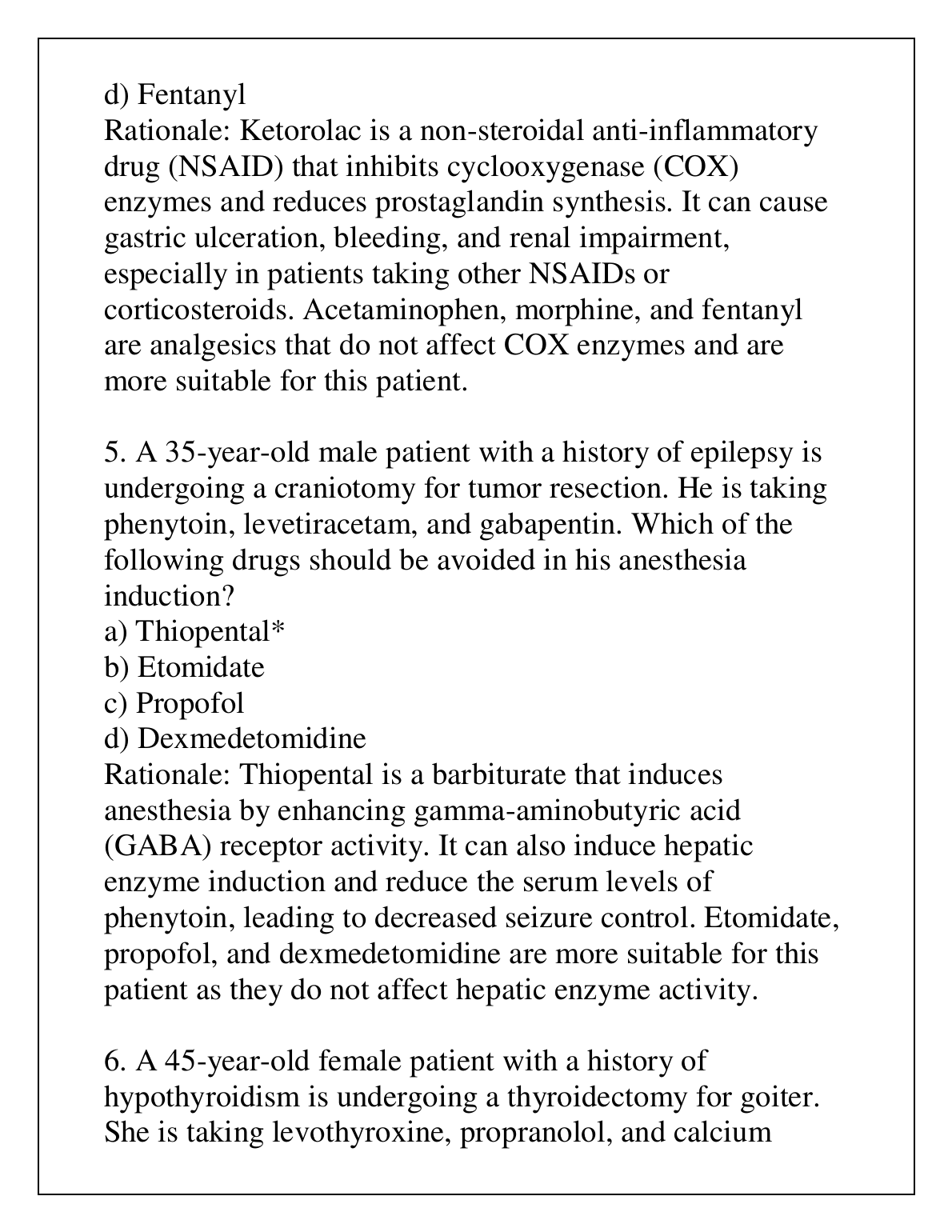 Cookies!
Cookies!

-
Categories
- ATI
- NR
- OCR GCSE Papers & ma...
- AQA papers mark sche...
- Relias Dysrhythmia
- OCR GCE A & AS LEVE...
- OCR GCSE Question Pa...
- Pearson Edexcel A an...
- EXAM
- Summary
- Study Notes
- QUESTION PAPER (QP)
- QUESTIONS & ANSWERS
- CASE STUDY
- Class Notes
- ESSAY
- Presentation
- Report
- Judgements
- Manual
- Summary
- STUDY GUIDE
- Thesis
- Visual
- Text Book Notes
- BUSINESS PLAN
- Syllabus
- LECTURE NOTES
- E-Book
- EXAM PROCTORED
- NCLEX-PN
- NCLEX-RN
- ORDER CUSTOM PAPER H...
- Dissertation
- Research Paper
- DISCUSSION POST
- Final Exam Review
- EXAM REVIEW
- SOAP NOTE
- iHuman
- SHADOW HEALTH
- TEST BANK
- MILESTONE
- HESI
- ATI MEDICAL SURGICAL
- QUESTIONS and ANSWER...
- SOPHIA PATHWAY
- MED-SURG EXAM
- HESI MED SURG
- UWorld
- Lab Experiment
- Lab Report
- Experiment
- NCLEX
- PATIENT ASSESSMENTS
- JOURNAL
- SOPHIA Milestone
- VSIM for NURSING FUN...
- PROJECT FINAL
- CAPSTONE SIMULATION
- VATI RN
- VATI PN
- Portfolio
- GIZMOS
- Solutions Guide
- SOLUTIONS MANUAL
- vSim For Nursing
- SWIFT RIVER
- MARK SCHEME
- Virtual Clinical Exp...
- AQA
- AQA Questions and Ma...
- Higher Education
- Edexcel
- INSTRUCTOR MANUALS
- ATI
- Advanced Trauma Life...
- GUIDELINES
- INTERVIEW
- Object-Oriented Prog...
- AS Mark Scheme
- A-Level Mark Scheme
- ANSWERS AND COMMENTA...
- GCSE MARK SCHEME
- GCSE QUESTION PAPER
- AQA Question Papers
- A/As Level Mark Sche...
- AS Level Mark Scheme
- RESOURCE BOOKLET
- Edexcel Question Pap...
- QUESTION PAPER & MAR...
- Test Prep
- LAB QUIZ
- Quiz
- PREDICTED PAPER
- IGCSE
- Examiners’ Report
- SPECIMEN INSERT
- INSERT CONTENT PAPER
- AQA A/As Level Quest...
- As Level Question Pa...
- Cambridge Internatio...
- Cambridge IGCSE QP
- Cambridge IGCSE MS
- BTEC Nationals
- Edexcel Mark Scheme
- A Level Question Pap...
- AS Level Question Pa...
- CHEAT SHEET
- Capism
- FISDAP
- AHIP
- Feedback Log
- Book Review
- FILM REVIEW
- POEM ANALYSIS
- SUMMARY
- PLAY ANALYSIS
- MOVIE ANALYSIS/REVIE...
- SAT
- LSAT
- MCAT
- TOEFL
- IELTS
- Textual Analysis
- Annotated Bibliograp...
- CODING SOLUTION
- Literature
- COURSE NOTES
- ASSIGNMENT
- PROJECT REPORT
- SOLUTIONS
- EXAM/TEST TEMPLATE
- TEMPLATE
- HOMEWORK
- WORKSHEET
- TEST PREP
- English Literature
- FINAL EXAM
- HESI A2
- APEA
- CAPSTONE
- SIMULATION
- PROGRAMMING
- HTML
- USMLE
- HARVARD CASE SOLUTIO...
- CASE SOLUTIONS
- Exam (elaborations)
- Answers
- Other
- Textbook notes
- Case
- TEST BANKS
- AMLS
- A Level & AS Level N...
- Exam Elaborations
- NRNP
- WGU C214
- Straighterline
- NBME
- NSG
- AQA 2023
- AQA GCSE QUESTION PA...
- Prophecy Pacu
- Prophecy Medical Sur...
- Prophecy RN
- TNCC
- WGU C215
- Texas All Line
- Rasmussen Pharmacolo...
- AQA Papers & Mark Sc...
- EMT BLOCK
- PAX
- EXCEL CRASH COURSE
- EMT FISDAP
- ATI Dosage Calculati...
- APEX
- TMC
- OCR GCSE
- Wonderlic
- VATI
- ANCC
- Smart Serve
- WGU C428
- AQA GCSE COMBINED SC...
- OCR PAPERS & MARK SC...
- NAPRx
- NUTRITION 101
- WGU C207
- USPS
- Support
- Cart {{ cart.length }}
- Account
 View example
View example
NURS 507 Nurse Anesthesia Pharmacology Latest Assessment Q & A 2024
Â
1. A 65-year-old male patient with a history of
hypertension, diabetes, and coronary artery disease is
scheduled for a coronary artery bypass graft surgery. He is
taking metoprolol, lisinopril, aspirin, and metformin.
Which of the following drugs should be avoided in his
anesthesia induction?
a) Fentanyl
b) Propofol
c) Ketamine*
d) Midazolam
Rationale: Ketamine is a sympathomimetic drug that
increases blood pressure, heart rate, and myocardial oxygen
demand. It can cause myocardial ischemia and arrhythmias
in patients with coronary artery disease. Fentanyl, propofol,
and midazolam are more suitable for this patient as they
have cardioprotective effects.
2. A 25-year-old female patient with a history of asthma is
undergoing a laparoscopic cholecystectomy. She is allergic
to penicillin and sulfonamides. Which of the following
drugs should be used with caution in her anesthesia
maintenance?
a) Isoflurane
b) Sevoflurane
c) Desflurane*
d) Nitrous oxide
Rationale: Desflurane is a potent bronchodilator, but it can
also cause airway irritation and coughing during inhalation.
It can trigger bronchospasm in patients with asthma,
especially if they have airway inflammation or infection.
Isoflurane, sevoflurane, and nitrous oxide are less irritating
to the airway and more suitable for this patient.
| Author | ProfoundTutor |
| Published | 16 Dec 2025 |
| Included files | |
HESI PN PHARMACOLOGY EXAM TEST BANK LATEST 2024 QU...
Pharmacology Maternity Final HESI Evolve 2024
HESI DOSAGE CALCULATIONS PRACTICE EXAM, HESI PHARM...
Pharmacology Pediatrics Final HESI Evolve 2024 Edi...
HESI PHARMACOLOGY RN EXIT LATEST 2024 COMMUNITY HE...
HESI RN Pharmacology Exam Test Bank Questions & An...
NEW UPDATE HESI PHARMACOLOGY QUESTIONS 2024 SERIES

 Cookies!
Cookies!







